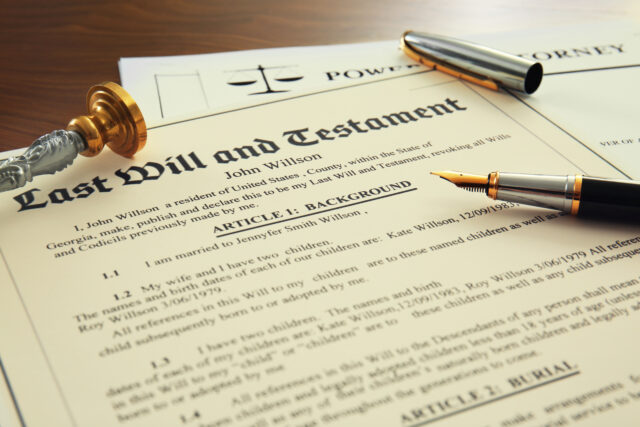Can My Child Testify During a Custody Case in Massachusetts?
Middlesex County Divorce Attorney

At the time of saying, “I do,” no one imagines that their marriage will one day end in a divorce. Unfortunately, this is a reality for roughly 50% of all married couples here in the United States. That said, if you’re currently facing a divorce, the attorney you choose to represent you can make all the difference. Here at Mark Liam Gannon, Attorney at Law, we believe in providing all of our clients with the compassionate, effective legal guidance they deserve as they embark on this new chapter of their lives. If you’re about to go through the divorce process, simply contact an attorney from Mark Liam Gannon, Attorney at Law, for your initial consultation today.
Grounds for Divorce in Massachusetts
When filing for divorce in Massachusetts, it’s important to understand the legal grounds upon which you can base your case. In Massachusetts, there are two primary categories of grounds: no-fault and fault-based.
A no-fault divorce is the most common route couples take. Under Massachusetts law, this is filed on the grounds of an “irretrievable breakdown of the marriage,” meaning that the marriage simply cannot be repaired, and neither party is officially blamed for the breakdown. There are two types of no-fault divorces:
- 1A Divorce: This is filed when both spouses agree that the marriage is irretrievably broken and they have already reached a full agreement on all divorce-related issues, such as child custody, property division, and alimony.
- 1B Divorce: This is filed when one or both spouses claim the marriage is irretrievably broken, but they haven’t yet reached an agreement on the divorce terms. Couples who file under 1B can later convert their case to a 1A divorce once an agreement is reached.
Alternatively, a spouse can pursue a fault-based divorce by alleging that the other spouse’s misconduct caused the marriage to fail. Common grounds for a fault-based divorce in Massachusetts include:
- Adultery
- Cruel and abusive treatment
- Desertion for at least one year
- Gross and confirmed habits of intoxication (alcohol or drug abuse)
- Imprisonment for five or more years
- Failure to provide suitable support (when able to do so)
- Impotency
While a fault-based divorce allows a spouse to formally state wrongdoing, it’s important to weigh the pros and cons. Filing on fault grounds can be more emotionally charged, time-consuming, and expensive, as you’ll need to prove the alleged misconduct in court. However, in certain cases, proving fault may have strategic benefits, such as influencing alimony awards or custody decisions. By contrast, a no-fault divorce generally allows for a faster, less contentious process, often reducing legal fees and emotional strain.
Every situation is unique, which is why it’s crucial to speak with a knowledgeable divorce attorney who can help you determine which approach is right for your circumstances.
Types of Divorce in Massachusetts
In Massachusetts, divorces fall into two broad categories: uncontested and contested. Understanding the difference between the two can help you anticipate what lies ahead.
An uncontested divorce–also known as a 1A divorce–occurs when both spouses agree that the marriage has irretrievably broken down and they have reached a full, written agreement on all aspects of the divorce, including child custody, child support, alimony, and the division of marital property. Because the major issues have been settled outside of court, uncontested divorces are generally faster, less expensive, and less stressful. After filing the necessary paperwork jointly, both spouses will attend a short court hearing, and if the judge approves the agreement, the divorce will be finalized after a mandatory waiting period.
A contested divorce–also referred to as a 1B divorce–happens when the spouses cannot agree on one or more key issues. Even if both parties agree that the marriage should end, disagreements over matters like property division, child custody, or financial support require court intervention. Contested divorces tend to be longer and more complex, often involving formal discovery, negotiation, motions, and possibly a trial, where a judge makes the final decisions on unresolved issues.
Whether your divorce is contested or uncontested, having a skilled attorney by your side ensures your rights are protected and that you have a clear strategy for achieving the best possible outcome.
The Divorce Process in Massachusetts
The divorce process in Massachusetts involves several important steps. While every divorce is unique, a general overview of the process is as follows:
- Filing the Complaint or Joint Petition: To start the divorce, either one spouse files a Complaint for Divorce (for contested divorces) or both spouses file a Joint Petition for Divorce (for uncontested divorces). These documents are submitted to the Probate and Family Court in the appropriate county.
- Service of Process (for contested divorces): If a Complaint is filed, the filing spouse must formally serve the other spouse with divorce papers, usually through a sheriff or constable.
- Response and Temporary Orders: The non-filing spouse has 20 days to respond to the Complaint. Either party may request temporary orders to address urgent matters like child custody, support, or use of marital property while the divorce is pending.
- Discovery Phase: Both sides exchange financial documents and other relevant information through a process called discovery. This ensures transparency about each party’s assets, income, debts, and expenses.
- Negotiation and Settlement: Throughout the process, the parties (with the help of their attorneys) may negotiate to reach agreements on contested issues. Mediation may also be used to facilitate a settlement.
- Pretrial Conference: If an agreement hasn’t been reached, the court will schedule a pretrial conference to discuss the issues in dispute and explore settlement opportunities.
- Trial (if necessary): If no settlement is reached, the case proceeds to trial, where each side presents evidence and testimony. The judge then issues a final ruling on the contested issues.
- Judgment of Divorce Nisi: Once the judge approves an agreement or issues a ruling, the court enters a Judgment of Divorce Nisi. This judgment becomes final (or “absolute”) 90 days later, at which point the divorce is officially finalized.
Throughout each stage, your attorney plays a critical role in protecting your interests, ensuring compliance with court procedures, and advocating for a fair resolution.
How to Prepare for Divorce
Taking proactive steps before filing for divorce can help you feel more in control and better prepared for the road ahead. Here’s a list of important actions to consider:
- Gather Financial Documents: Collect copies of tax returns, bank statements, retirement account statements, credit card bills, mortgage documents, car loans, and any other financial records.
- Make a List of Assets and Debts: Create a detailed inventory of all marital and separate property, including real estate, vehicles, valuables, and debts.
- Establish a Budget: Begin tracking your monthly income and expenses to understand your financial needs during and after the divorce.
- Open Individual Accounts: If you don’t already have them, consider opening a checking and savings account in your name alone.
- Obtain Credit Reports: Request a copy of your credit report to identify joint debts and check your credit standing.
- Secure Important Personal Items: Safeguard personal documents such as birth certificates, passports, Social Security cards, and sentimental valuables.
- Consider Your Living Arrangements: Think about whether you’ll remain in the marital home or need to make alternative housing plans.
- Plan for Parenting: If you have children, start thinking about custody preferences, visitation schedules, and how you’ll communicate with your spouse about parenting decisions.
- Avoid Major Financial Changes: Refrain from making large purchases, selling assets, or transferring property until you’ve consulted with your attorney.
- Speak With a Divorce Attorney Early: Speak with a qualified divorce attorney as soon as possible to understand your rights, obligations, and legal options.
Contact a Massachusetts Divorce Attorney Today
Don’t go through the divorce process alone–our knowledgeable and dedicated divorce attorney is here to guide you through the process and ensure you start out your new life on the right foot. Our firm proudly handles divorces and other family law matters from our office in Tyngsboro for clients in Middlesex County and throughout Pennsylvania, including in Worcester County, Norfolk County, Suffolk County, and Essex County. Contact Mark Liam Gannon, Attorney at Law, for your initial consultation today. We are here to listen to your story and goals, and, from there, build an effective strategy going forward.
© 2026 Mark Liam Gannon, Attorney at Law.
All rights reserved. Attorney advertising.


